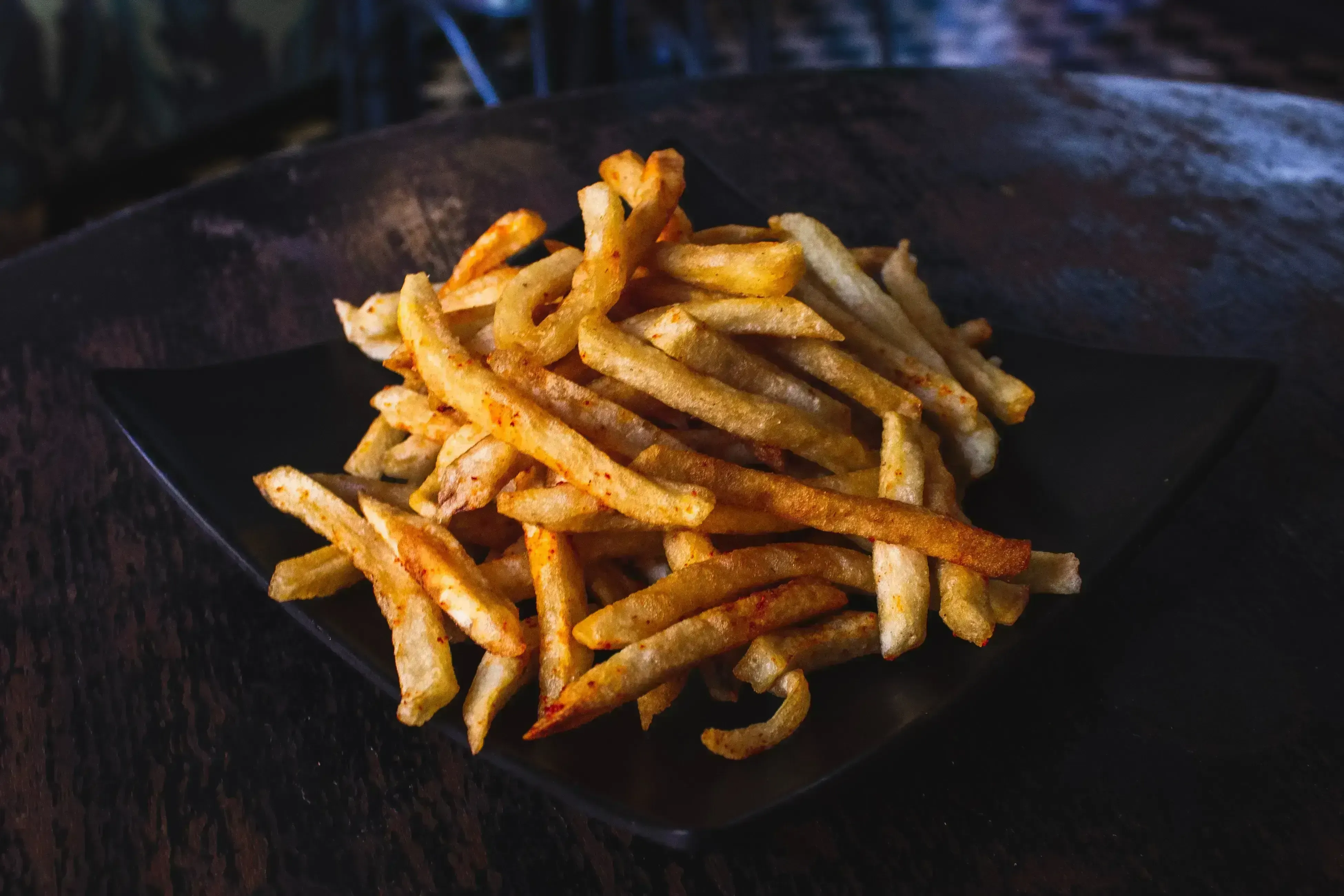Dietary decisions have a major influence on cancer development; however, genetics and environmental variables also play a key part in this complex and multifaceted illness. While certain foods have been demonstrated to have preventive qualities, others have been connected to an increased risk of cancer.

|
| French Fries. Image Credit to Louis Hansel |
Processed Meats
Preservatives called nitrites and nitrates, which are recognized carcinogens, are found in processed meats, including bacon, hot dogs, and deli meats. When these substances come into touch with stomach acid, they can combine to generate molecules that cause cancer. Processed meats are categorized as Group 1 carcinogens by the International Agency for Research on Cancer (IARC), indicating that there is proof that they can cause cancer in people. Limit your consumption of processed meats and go for less processed choices such as fresh deli meats or unprocessed meats like fish or poultry to lessen your risk of cancer.
Red Meat
High quantities of heme iron and saturated fat found in red meat, especially in beef and pork, have been connected to an increased risk of colon cancer. While saturated fat has been demonstrated to raise inflammation in the body, which may aid in the development of cancer, heme iron may encourage the colon's production of substances that cause cancer. Limit your red meat consumption or go for leaner cuts like flank steak or sirloin to lower your risk of colon cancer.
Fried Foods
Foods that are fried are often heavy in calories, saturated fat, and acrylamide. Acrylamide is a substance created during the frying process that has been identified as possibly carcinogenic by the International Agency for Research on Cancer (IARC). A study published in the Public Library of Science One (PLOS ONE) has shown that acrylamide can damage DNA and cause mutations that may lead to the development of cancer. To lower your risk of cancer, it's recommended to limit your consumption of fried foods and choose healthier cooking techniques like grilling, baking, or steaming instead. These methods can help reduce the amount of acrylamide and other potentially carcinogenic substances in your diet.
Alcohol
Drinking alcohol has been associated with a higher chance of developing breast, liver, and colorectal cancers, among other cancers. Alcohol may harm a cell's DNA and interfere with its ability to divide and expand, which can result in the development of cancer. Limit your alcohol consumption or go for low-alcohol choices like light beer or wine spritzers to lower your risk of cancer.
Sugar-Sweetened Beverages
Beverages with added sugar, such as fruit juices, sports drinks, and soda, are heavy in calories and sugar and can cause weight gain and obesity, which are risk factors for many cancer types. Furthermore, because sugar-sweetened beverages contain a lot of estrogen, there is a relationship between them and a higher risk of breast cancer. Limit your consumption of sugar-sweetened beverages or go for healthy choices like water, unsweetened tea, or coffee to lower your risk of cancer.
Remember: always consult with a healthcare professional for personalized advice on how to maintain a healthy lifestyle that reduces your risk of cancer.
